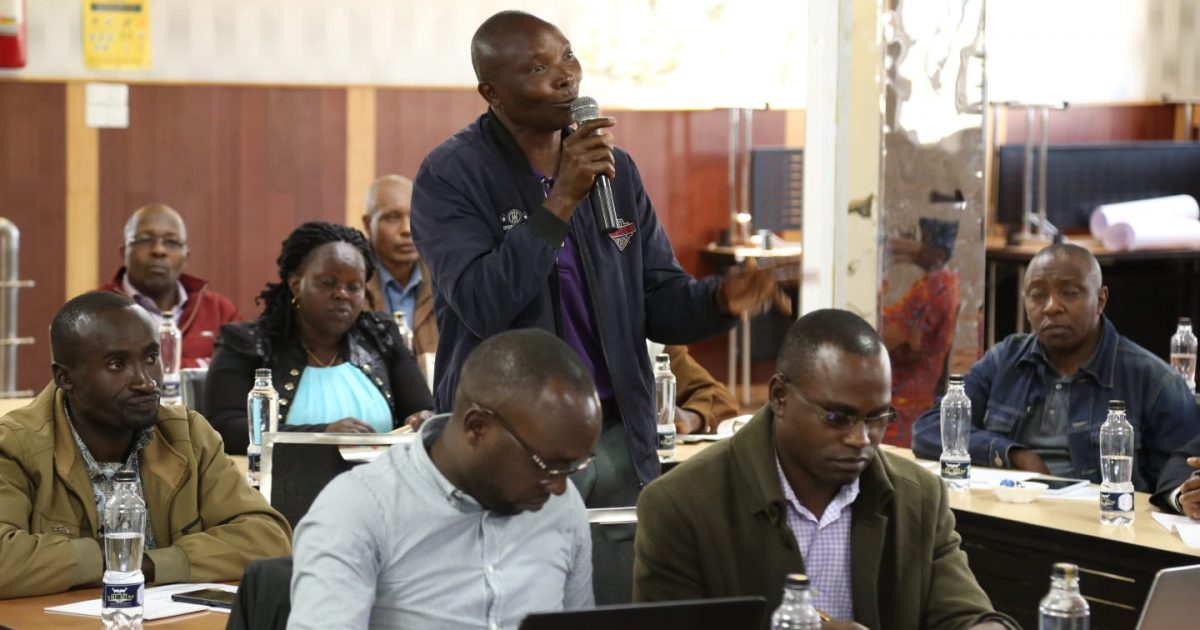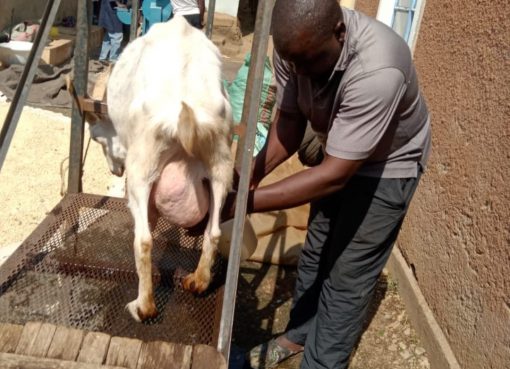Nakuru County Government is pushing for responsible use of pesticides as it begins a program to educate farmers on sustainable and safe ways to produce food.
The devolved unit is promoting the use of non-chemical pest-fighting measures to shield consumers from excessive chemical residues in food and protect the environment.
While stating that pesticide overuse was a threat to food safety, Deputy Governor Mr David Kones said some of Kenya’s horticultural products destined for export markets have been intercepted based on Maximum Residue Limits (MRLs), defined as the maximum concentration of pesticides that are either not permitted in the markets or exceeds the set limits.
“We have begun educating our farmers on how to comply with the rules of the European market. Kenya has had challenges in cut flowers and more recently beans and avocados, he said.
“All agrochemical companies should ensure proper use of their products through adequate labeling using the widely used national language and take responsibility where harm occurs due to lack of sufficient information,” he added.
Mr Kones noted that there were growing concerns about health risks posed by pesticide residues in food adding that pesticides can persist in the environment for decades and pose a threat to the entire ecological system.
He also indicated that excessive use and misuse of pesticides pollutes water resources, causing loss of biodiversity, and further compromising the safety of food.
The Deputy Governor said farmers across all the 11 Sub-Counties will be educated to adopt food production methods that do not emphasize the use of pesticides and other chemicals.
Mr Kones underscored the need to step up surveillance and monitoring at ports of entry, including airports and border posts, to ensure that unscrupulous traders do not smuggle into the country deadly substances.
He made the remarks at a Nakuru hotel when he inaugurated a two-day training session for over 200 farmers on safe and responsible use of pesticides.
The event organised by the County Government in collaboration with Centre for Agriculture and Bioscience International (CABI) and Centre for Behaviour Change and Communication (CBCC) also brought on board various food value chain players including, agro-dealers, agriculture extension officers and consumer organisations.
The training is focusing on sharing out the latest innovations, technologies and management practices in farming that lead to climate-smart agriculture.
The farmers are being sensitised on methods that are expected to increase productivity, enhance farmers’ resilience and reduce greenhouse emissions.
The United Nations Food and Agriculture Organisation estimates that nearly three million people are poisoned and 200,000 die every year. In Kenya, about 350,000 cases of pesticide poisoning are reported annually.
Kones indicated that besides excessive chemicals being a danger to human health, they also eat into farmers’ working profits and are demotivators, therefore, threatening food security.
The department of agriculture he added was partnering with research institutions in working towards a situation where use of chemical pest control will be a last resort after bio-friendly measures are found to have failed.
Experts have warned that many farmers in Kenya rely on profit-driven agrovets rather than agricultural extension officers to manage pests and diseases.
This has led to proliferation of crop protection products in the country, particularly those that are banned in Europe and elsewhere in the world.
A study that focused on Kirinyaga and Murang’a counties found that tomatoes are among the basic food products on which pesticides are largely misused.
The Deputy Governor underscored the need to strengthen pesticide risk regulation, research and education to yield possible alternatives and put a stop to the importation of all the pesticides banned in the European Union.
He however observed that as a sum, Kenya’s pest control regulation was so stringent that the country is Africa’s second largest exporter of fresh produce to international markets that demand good agricultural practice (GAP) and absolute rigour in pesticide safety.
The Deputy Governor suggested that the Pest Control Product Board (PCPB) should be empowered to access data on environmental and human health impacts during the registration and re-registration process of products.
Though pesticides significantly contribute to enhancing food security globally, their use also poses a health hazard that must be taken seriously.
According to a report by the United Nations Food and Agriculture Organisation some 385 million people suffer from pesticide poisoning worldwide, and yet the European countries where these deadly substances are manufactured have not stopped their sale overseas.
Records from the Pest Control Products Board (PCPB) indicate that Kenya has banned 43 products and restricted the importation and use of five others.
The board is now working with an international partner to train Kenyans on what to look out for. This is vital as pesticide use in Africa has increased by nearly 70 per cent between 1999 and 2021.
By Anne Mwale





